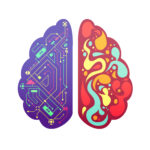Understanding ADHD and the Support Available

ADHD stands for Attention Deficit Hyperactivity Disorder, and it’s a neurodevelopmental condition that affects people of all ages across the world. Find out more about the disorder and the support available.
What is ADHD?
There are two main symptoms of ADHD – inattention and hyperactivity and impulsivity.
Inattention symptoms:
- difficulty concentrating
- forgetfulness
- constantly starting new tasks without finishing them
- carelessness
Hyperactivity and Impulsivity symptoms:
- restlessness and constant movement
- impulsive behaviours
- interrupting others
- taking risks
- saying the wrong thing at the wrong time
- mood swings
- stress
Diagnosis
There is no medical test for ADHD – diagnosis is based on visible symptoms. ADHD is usually diagnosed in childhood, and parents or teachers often spot the symptoms. However, lots of children and young people are not diagnosed, with many of them realising they have ADHD as a teenager or an adult.
Many people share their experiences of ADHD on social media, which can lead to others recognising the symptoms in themselves and lead to them trying to get a diagnosis.
Treatment
There is no cure for ADHD, but there are different treatments to manage the impact on your life. These include medication and talking therapies.
Medication can help to improve concentration, reduce impulsivity and make you feel calmer. But, depending on the individual, it can also have side effects, so it’s important that you ask your doctor about these and monitor them carefully.
Some people go undiagnosed – sometimes for part of their life or maybe never. This means they don’t get access to treatment. However, you may still struggle with the symptoms of ADHD and looking for things that can help.
If you’re not receiving treatment for ADHD, you could:
- tell your employers or teachers about your symptoms and ask for support
- double-check your work to avoid mistakes
- create routines and set reminders to help you stay on track
- split tasks into manageable chunks to avoid getting overwhelmed
- take regular breaks to maintain focus
Talk to Meic
If you’re not sure whether you have ADHD or not, you could try talking to your doctor. But we understand that this can be overwhelming or scary for some people. If you want to talk to someone to help you understand your options, contact Meic.
Meic is a confidential and anonymous service for children and young people in Wales. You can access support from 8am to midnight every day, in both English and Welsh.
Meic is someone on your side. Call 080 880 23456 or chat to us online at www.meic.cymru.






















